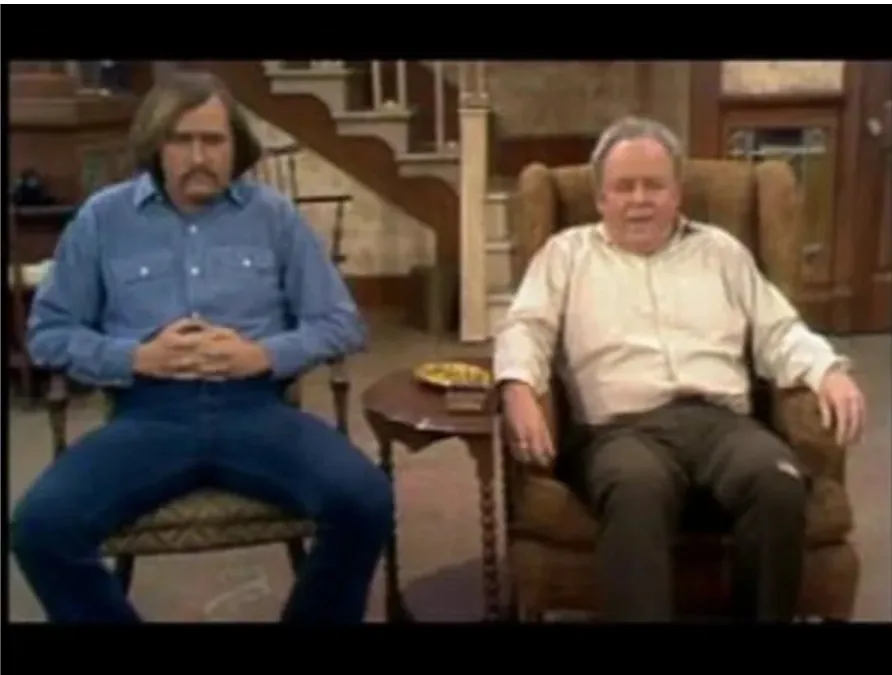More than fifty years after All in the Family first aired, a powerful clip featuring Archie Bunker is once again making waves across America. The iconic sitcom character—known for his blunt honesty and old-school patriotism—has always sparked debate, but one particular scene has resurfaced online and is striking a chord with millions who still connect deeply with his love for country. Archie, a working-class veteran shaped by years in the military and a strong belief in American values, never hesitated to defend the Star-Spangled Banner, no matter who challenged it.
In the viral scene, Archie sits down to watch a sports broadcast with his outspoken son-in-law, Michael “Meathead” Stivic. As the national anthem begins to play, Meathead openly criticizes it, calling it a “terrible song” that glorifies war. His complaint isn’t about modern cultural debates surrounding the anthem—he objects to its origin during the War of 1812 and insists it celebrates violence. His words echo a mindset that has existed for generations: questioning patriotic symbols, wrestling with the meaning of national identity, and challenging traditional values.
Archie’s response is immediate and fiery. He turns to Meathead in disbelief, unable to fathom how anyone could speak so dismissively about a song he views as sacred. To Archie, the anthem is more than music—it represents sacrifice, freedom, and unity. It carries the weight of battles fought and the lives of those who never came home. For him, respecting the anthem isn’t about politics; it’s about gratitude and honor. His passionate defense reminds viewers why the character resonated so strongly in his era and why his words continue to resonate today.
As the clip spreads across social media, viewers old and young are revisiting the timeless tension between tradition and changing cultural values. Some find themselves agreeing with Archie, feeling pride swell at his unwavering stance. Others sympathize with Meathead’s questions. But regardless of where people stand, one thing is clear: the scene still sparks conversation five decades later. And in true All in the Family fashion, it reminds us that even humor can deliver powerful commentary on what it means to be American.
